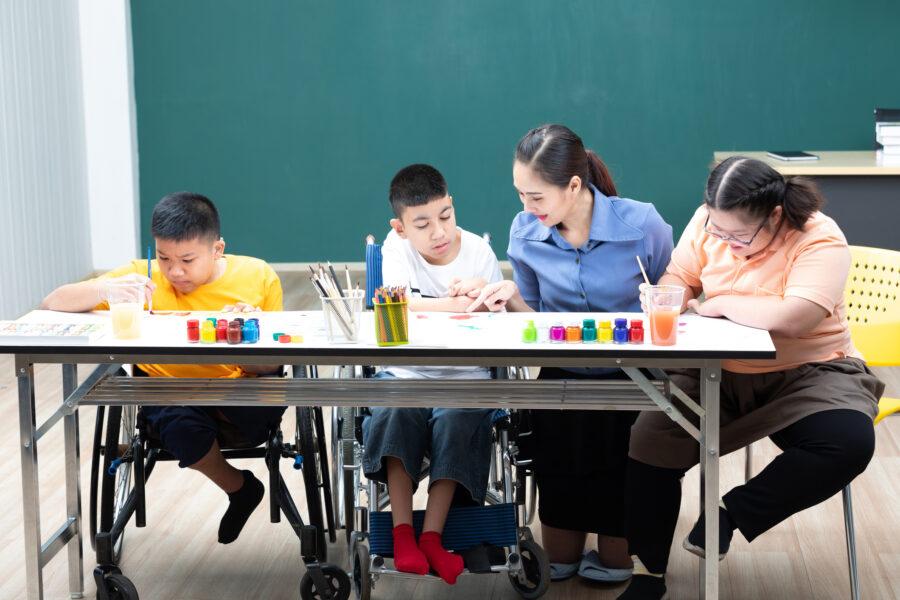
Emergencies can happen in any school setting, and when they do, educational assistants (EAs) play a crucial role in ensuring the safety and well-being of students.
Educational assistants are key in maintaining order and providing support, whether in a medical emergency, natural disaster, or lockdown situation.
If you’re considering a career as an educational assistant, understanding how to respond to emergencies is essential to the job.
This blog will explore how EAs contribute during crises and why the skills learned through educational assistant training at the Academy of Learning Career College are critical in navigating these challenging moments.
The Role of an Educational Assistant in Emergency Situations
As an educational assistant, your primary responsibility in any emergency is safeguarding the students under your care. This may involve everything from implementing safety protocols to offering emotional support to students feeling frightened or overwhelmed. A clear understanding of your role in such situations allows you to act quickly and decisively when it matters most.
During your educational assistant course, you’ll learn various protocols to handle different types of emergencies.
For example, if there’s a fire drill or a fire, you may be responsible for guiding students to designated safety areas and ensuring no one is left behind. EAs often provide immediate assistance in medical emergencies, helping students remain calm while professionals take over.

As an educational assistant, your top priority in any emergency is student safety
Maintaining a Safe Environment as an Educational Assistant
Safety is always a top priority, especially in a school emergency. Educational assistants must be familiar with the school’s emergency procedures and policies. This includes knowing where exits are located, understanding lockdown procedures, and being aware of any medical conditions that students may have.
Part of your job as an educational assistant involves constantly being alert and proactive about potential risks. This could mean noticing a student struggling with a health issue or recognizing a safety hazard before it escalates into a more severe problem. You are often among the first adults to respond in any situation, so your preparedness can significantly impact how effectively an emergency is managed.
Supporting Students Emotionally
In addition to managing physical safety, educational assistants also play a vital role in providing emotional support during crises. Children, especially younger students, may experience heightened anxiety or confusion when emergencies arise. As an EA, part of your role is to maintain a calm demeanour and reassure students, helping them stay composed and focused on following safety procedures.
AOLCC’s educational assistant training offers programs in areas like non-violent crisis intervention, providing insights into techniques for calming students, giving clear instructions, and fostering a positive environment during challenging moments.

Educational assistant training equips you to calm students, give clear instructions
Collaboration With Other Staff
In an emergency, educational assistants work closely with teachers, administrators, and emergency personnel to ensure the safety of all students. Collaboration is key. You might be tasked with communicating updates to other staff members, assisting with evacuating students, or helping organize students safely during lockdowns.
Your ability to follow directions, stay composed, and communicate effectively with your colleagues is vital to managing the situation. By working together, the school staff can ensure that emergencies are handled efficiently and with minimal disruption.
Preparing for Emergencies in Your Educational Assistant Course
In your educational assistant training, you’ll gain essential first aid skills, covering CPR, controlling bleeding, and managing emergencies. These components prepare you to respond confidently and effectively to various unexpected situations in the classroom.
Reach that moment when you feel fully prepared to make a difference in students’ lives. AOLCC’s educational assistant course equips you with in-demand skills, opening doors to exciting opportunities in schools, special programs, and treatment centers.
Are you ready to embark on this exciting journey?
Your career awaits!
___




